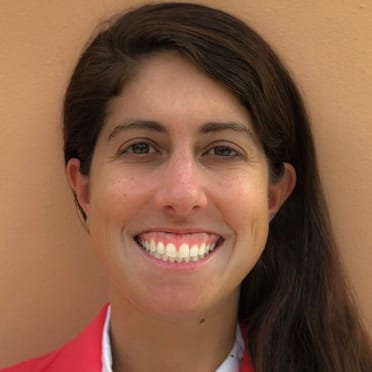Among Bendix's goals: Making the Marlins a 'first-class experience'
New Marlins president of baseball operations Peter Bendix recently sat down with MLB.com for an exclusive interview to discuss everything from his vision for the organization to his favorite TV shows (¡°Breaking Bad,¡± ¡°The Wire,¡± and ¡°Better Call Saul¡±).
Here is the second installment of the three-part series, in which Bendix answers questions about his baseball philosophy. (And here's Part 3)
MLB.com: What are some of the things that [the Rays, Bendix's former club] would be able to pick up on that could predict that type of success [for players] when there hadn't been [previous] success?
Bendix: It's so many different things. Sometimes it might be movement on a pitch. Sometimes it might be thinking that a player has just had a random set of bad outcomes, and so they just want to do the same thing again. Sometimes it's about helping their mindset, building them up, giving them compliments, telling them, "Hey, we think you're really good already. Just go be yourself."
Sometimes it's about a very specific mechanical coaching change. But even with that, it's still about getting a buy-in from the player first. Because if they don't buy in and trust that they should do what you think, they're not going to do it. And you might have the best idea in the world, [but] if you can't both communicate that to the player and get his buy-in, that idea doesn't matter.
MLB.com: Going from an intern to now, it helps to know what different departments require. You started at the bottom. I¡¯m sure that helps as you ...
Bendix: My expertise is having a broad array of understanding across a lot of different areas. Once I embraced that, I understood that [being a generalist] is also an area of expertise, and that that area of expertise contributes to my skill set of getting buy-in and implementing things across a wide number of people, and helping move ideas and things forward.
I can talk the language of all of these different departments. I can understand exactly what a scout is seeing on the field, even if I wouldn't necessarily be able to pick it out myself. I can understand exactly how a model is built in R&D, even if I couldn't build it myself.
So I can connect them. I can help explain things. I can help realize when people are talking past each other and translate. And I can synthesize all this information that comes together, try to both make the information better, push back on it, question it, and take the important parts of it to help make a final decision.
MLB.com: Are there any advantages that you can capitalize on being with the Marlins?
Bendix: I think the city of Miami, certainly. This is a place that players want to be -- not just Latin players. This is a vibrant city. It's a diverse city, a multicultural city, a city with a lot of fun things. And it's a unique city in a positive way. There's not many other places that can say "we're just like Miami." That's a very positive thing. And that's something that I think we can really use to our advantage.
And what we need to do to pair with that is we need to then build the organization to be a first-class experience for players, so that when they're here, they feel taken care of. They feel like this is the big leagues. "I'm in the big leagues. This is really well done. This is organized. They treat me really well. They treat me as a person, not as a cog in a machine." All the little things that might not seem like they matter a lot really do.
MLB.com: If you could have acquired a baseball player -- retired or dead -- for your team, who would it be?
Bendix: Wow. ¡ The person who comes to mind is Jackie Robinson. On the field, off the field, who he was as a person. He was also incredibly good at baseball. People forget that part of it. That is the less important part of what he did. But he was incredibly good at baseball. Guys who are really, really good people and at baseball.
MLB.com: What would you consider successful for the Marlins¡¯ organization?
Bendix: On the field, I think it is as many playoff appearances as possible. I think it is entering as many seasons as we can with legitimate playoff aspirations, playing meaningful, exciting games in September. If you achieve those things, the true goals of winning as many World Series as possible, those will follow.
You have to make the playoffs to have a chance to win the World Series. You have to be in the pennant race in September in order to make the playoffs. And that's what makes the seasons fun. The seasons in which you're playing in meaningful games, and they're exciting games, and we have a chance, that's fun.
And we want as many of those as possible.

